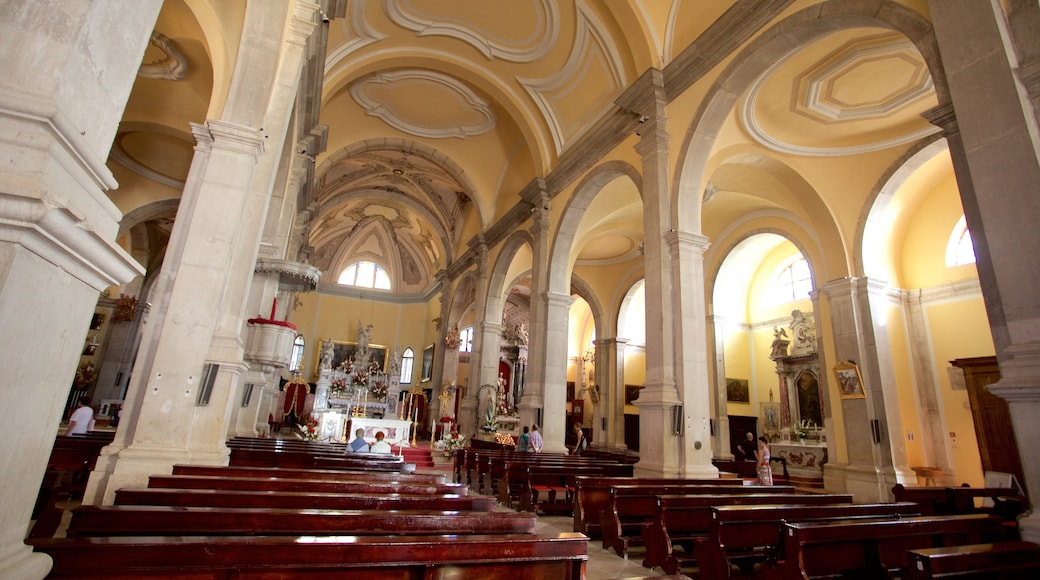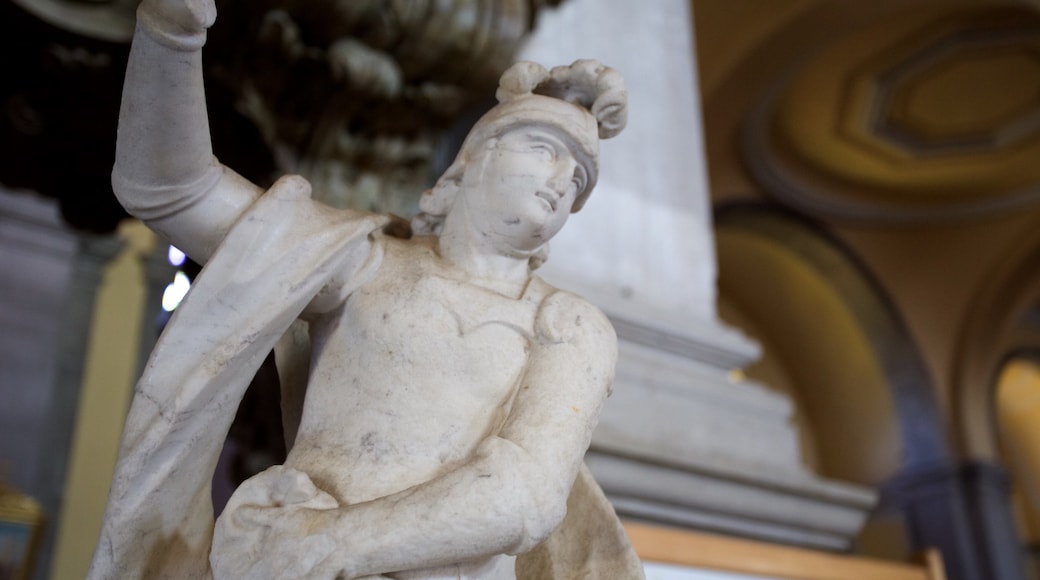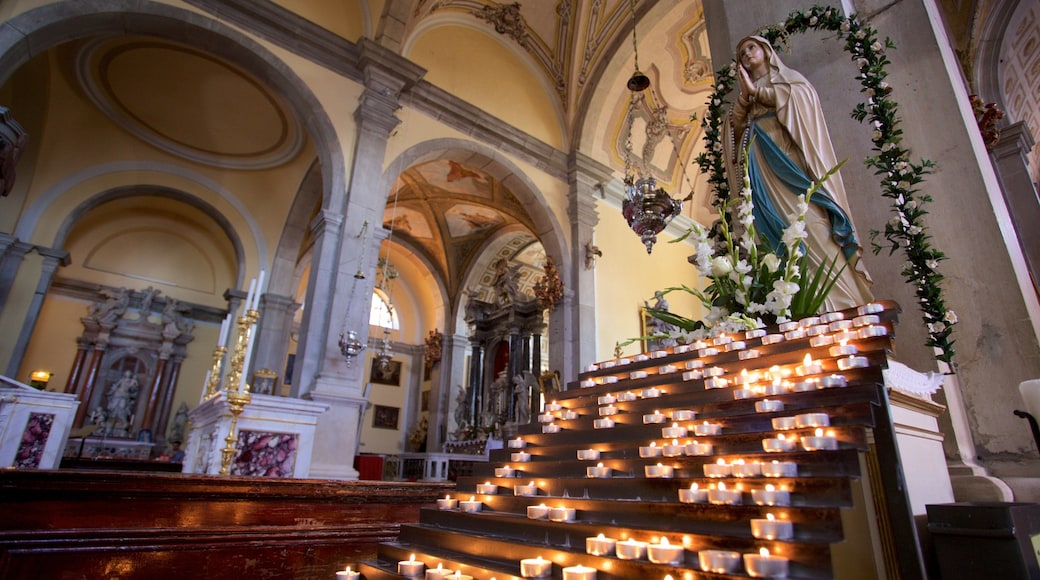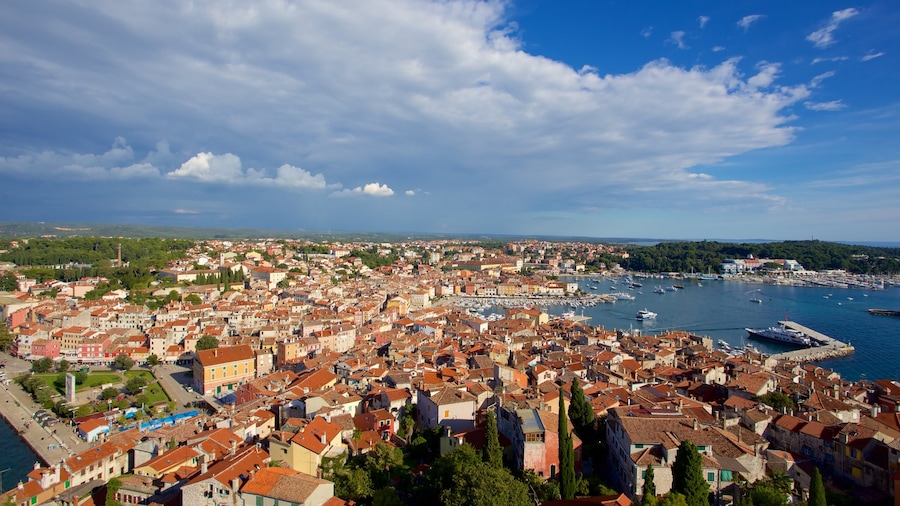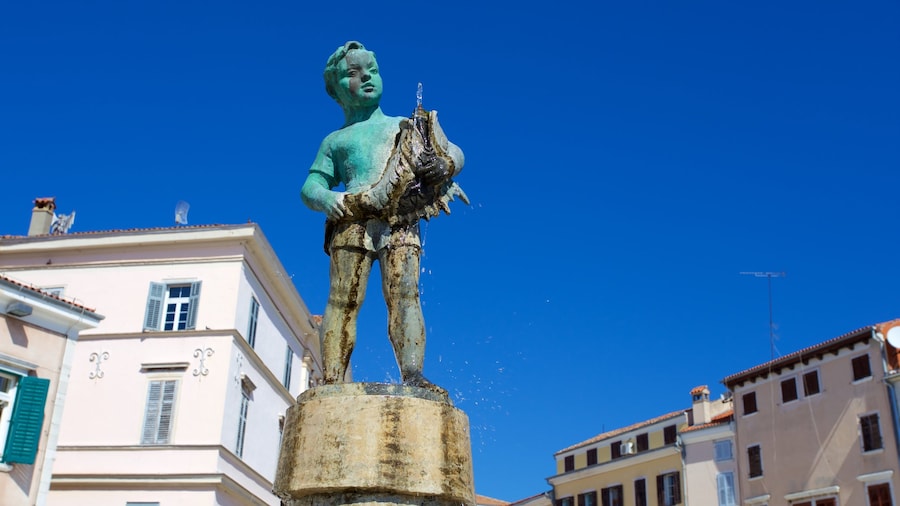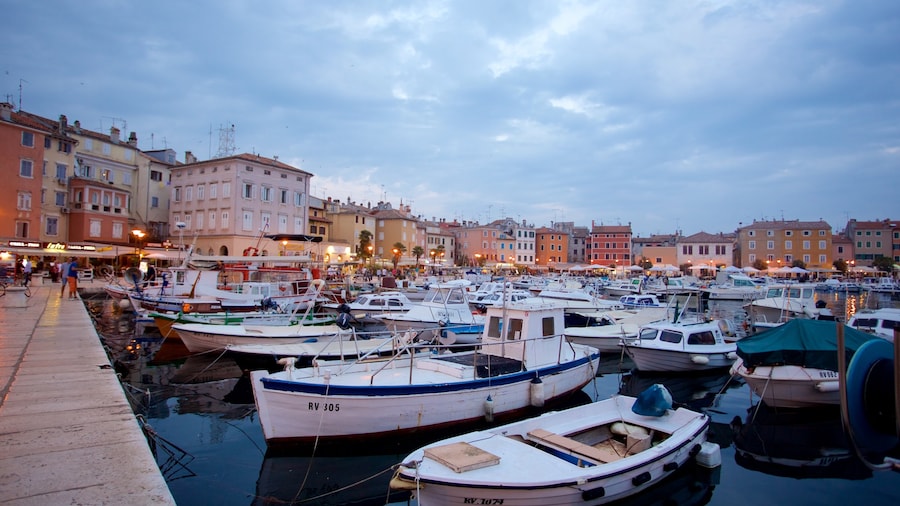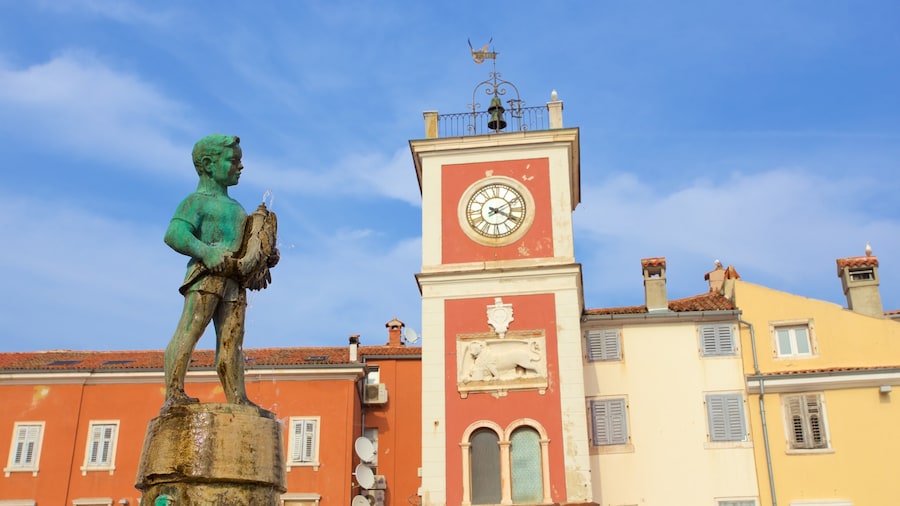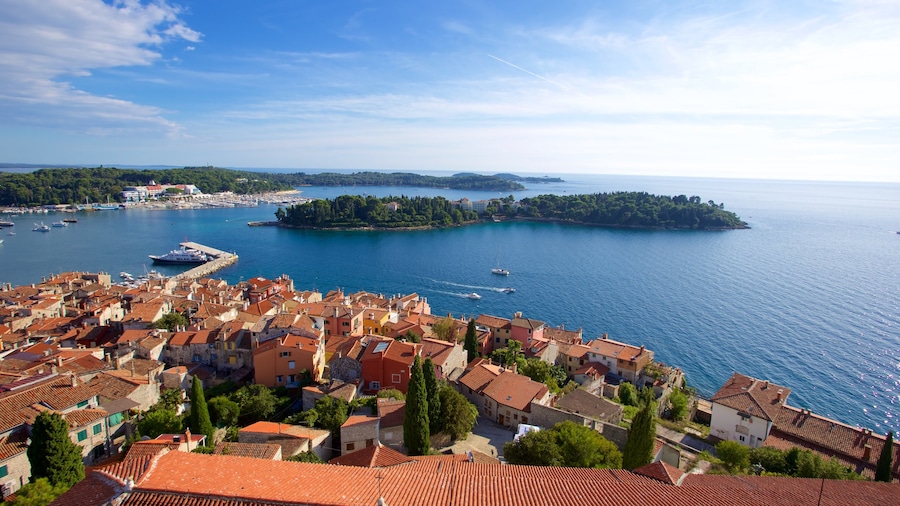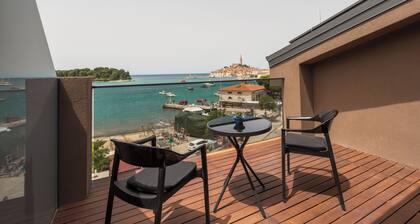Standing tall upon a hill on the western side of the Istrian Peninsula, St. Euphemia’s Church is the most prominent building in Rovinj. See it from nearly any part of the town. Explore the ornate and beautifully decorated interior, learn about the legend behind its eponymous saint and ascend the lofty bell tower for unbeatable aerial views.
This church was built between 1725 and 1736 on the site of an earlier church to house the remains of Rovinj’s patron saint. A Roman martyr, St. Euphemia sentenced to death for her Christian beliefs in A.D. 303. According to local legend, a sarcophagus containing her remains miraculously washed up on the coast of Rovinj, having mysteriously disappeared from Constantinople around A.D. 800. See this marble sarcophagus in the church, where it is still kept behind the altar.
The sarcophagus isn’t the only reference to Euphemia inside the church. Look for an engraving to the right of the entrance depicting the patron saint holding Rovinj in her arms. A bronze statue of Euphemia crowns the bell tower. Two murals near the sarcophagus depict the saint. One shows Romans throwing Euphemia to the lions and another depicts the arrival of the sarcophagus in Rovinj.
Climb to the top of the church’s 200-foot (61-metre) bell tower its design is based on St. Mark’s Campanile in Piazza San Marco, Venice. The steps are narrow, but the panoramic views from the top are among the best in the region. Bring your camera along to take photos. Point the lens west for pictures of the Adriatic Sea and the coastal regions or east for scenes of Croatia’s rugged hinterland.
The church is located in the centre of Rovinj at the top of a hill. After the arduous ascent, rest on the pleasant square out front, which provides views over the sea.
Entrance to St. Euphemia’s Church is free but there is a fee to enter the bell tower. Remember to dress respectfully or admission may be refused. The church is open daily during summer months. At all other times, it is open only for mass.

